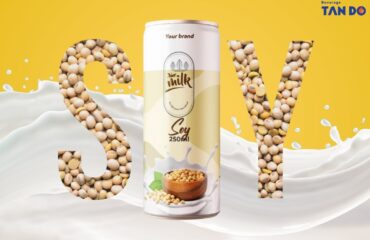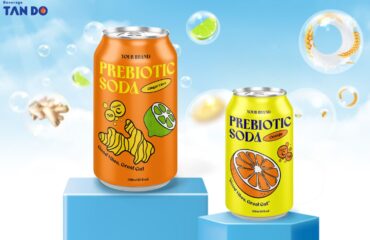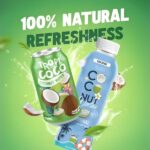Soy milk benefits are driving the global rise of plant-based drink, not just as a favorite among health-conscious consumers but also as a strategic opportunity for beverage brands. With its natural nutrition, versatile flavor, and adaptability in product development, soya milk opens doors for private labels, OEM/ODM manufacturers, and established beverage companies to create innovative, in-demand products.
Read on to discover how brands can leverage these benefits of soy milk to capture market share and meet the growing demand for plant-based beverages.
What Is Soy Milk Drink?
Soy milk is a smooth, creamy plant-based drink made by soaking soybeans, blending them with water, and straining out the solids. The result? A nutritious, dairy-free liquid that’s perfect for anyone looking for a healthy, versatile alternative to cow’s milk.
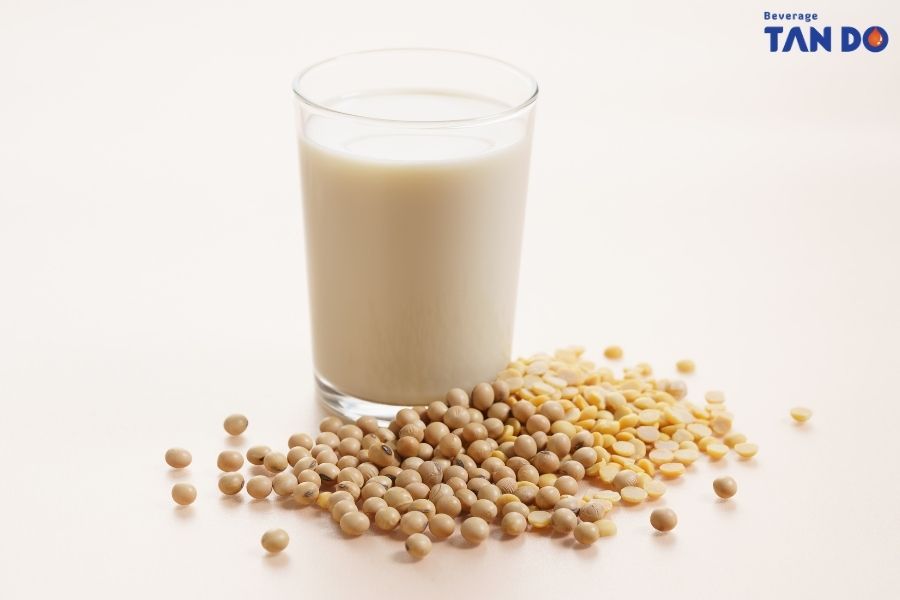

As a manufacturer, we see two main types of soy milk on the shelves: unsweetened and sweetened.
- Unsweetened soy milk is the most basic and natural version, usually made from just purified water and soybeans. Some brands may fortify it with minerals, vitamins, or a small amount of salt to enhance nutritional value.
- Sweetened soy milk includes added sweeteners, most commonly cane sugar, for a smoother and more dessert-like taste. To better mimic the flavor and texture of dairy milk, manufacturers often incorporate ingredients like vanilla, salt, or a small amount of oil. Some varieties are also flavored — such as chocolate soy milk — by adding cocoa powder.
In addition, many sweetened and even some unsweetened products include stabilizers or thickeners. These ingredients help maintain a consistent texture, prevent separation, and give the drink a richer, more satisfying mouthfeel — similar to traditional cow’s milk.
Is Drinking Soy Milk Good for You? Unpack Its Nutritional Profile
Absolutely! Soy milk is more than just a tasty dairy alternative — it’s packed with nutrients that can support a healthy lifestyle. Based on data from the USDA’s FoodData Central, a typical 1-cup (244 g) serving of unsweetened, fortified soy milk provides:
- Calories: 105 kilocalories (kcal)
- Protein: 6.34 grams g)
- Fat: 3.59 g
- Carbohydrates: 12 g
- Total dietary fiber: 0.488 g
- Total sugars: 8.91 g
- Calcium: 300 mg
- Iron: 1.02 mg
- Magnesium 36.6 mg
- Potassium: 298 mg
- Sodium: 115 mg


Unfortified, unsweetened soy milk is naturally rich in nutrients like vitamin B6, magnesium, folate, and zinc, and some brands may also provide vitamin K and iron.
On the other hand, sweetened soy milk usually includes cane sugar, with each serving containing roughly 5–15 grams of added sugar, depending on the brand.
Top 8 Soy Milk Benefits Brands Shouldn’t Ignore
Soya milk is more than just a tasty dairy alternative — it has become a symbol of a healthy, sustainable, and nutrient-rich lifestyle. From a manufacturer’s perspective, here’s why soya milk continues to generate significant consumer interest and market traction:
1. Powerful Bioactive Compounds: Isoflavones
One of the key soy milk benefits is its natural content of isoflavones. Isoflavones are plant-derived compounds with a chemical structure similar to estrogen, which gives them unique health-promoting properties. These compounds act as antioxidants, helping neutralize free radicals — molecules that can damage DNA and trigger chronic inflammation
Isoflavones like genistein help reduce inflammation in the body, which is linked to a range of chronic diseases including heart disease, diabetes, and even some cancers. For manufacturers, this is a powerful marketing advantage, as the beverage can be positioned not only as a delicious drink but also as a functional product that supports long-term wellness.
2. Supports Healthy Cholesterol Levels
Soya milk is naturally rich in soy protein and isoflavones, which have been linked to cholesterol-lowering effects. Research shows that consuming soy protein can reduce LDL (“bad”) cholesterol and improve HDL (“good”) cholesterol levels.
Because soya milk is low in saturated fats — a nutrient known to raise LDL cholesterol — it provides additional support for cardiovascular health. Other study also indicate that consuming soya milk and other soy-based foods can reduce total cholesterol and triglycerides, making it a valuable beverage for heart-conscious consumers.
3. May Help Lower Blood Pressure
Among many soy milk benefits, one notable advantage is its potential to support healthy blood pressure. Isoflavones in soy are also known to enhance blood vessel function by promoting vasodilation, which helps lower blood pressure.
Even small reductions in blood pressure can provide meaningful cardiovascular benefits over time. With hypertension being a global health concern, soya milk offers an appealing option for consumers looking for natural ways to support blood pressure management.
For manufacturers, this is an excellent functional claim to communicate, aligning the product with health-conscious lifestyle trends.
4. Supports Weight Management
Soya milk is high in plant-based protein, which helps promote satiety and can reduce overall calorie intake. Protein-rich beverages like soya milk can be an effective tool for those seeking to maintain or lose weight, especially when consumed as part of a balanced diet.
Additionally, soy protein can improve insulin sensitivity, supporting better blood sugar control. Many consumers also use soya milk as a replacement for higher-calorie, less nutritious drinks, making it a practical option for long-term weight management (Alpro Foundation)
From a market perspective, this positions soya milk as a functional, smart choice, appealing to health-conscious Millennials, Gen Z, and busy adults who prioritize convenience and nutrition.
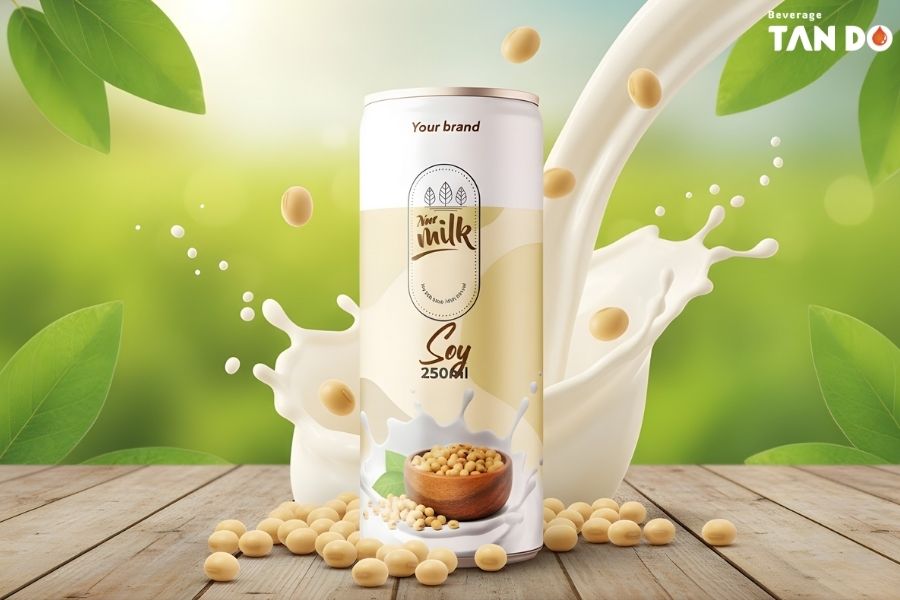

5. Eases Menopause Symptoms
One of the most unique benefits of soya milk is its potential to help alleviate menopausal symptoms. Isoflavones act as phytoestrogens — plant compounds with mild estrogen-like effects — that can bind to estrogen receptors in the body.
Clinical study has shown that consuming soy protein or isoflavone-rich products can help reduce hot flashes, mood swings, fatigue, and bone loss in women during menopause.
This makes soya milk particularly attractive to the middle-aged female demographic, a growing consumer segment with significant purchasing power.
6. Supports Overall Heart Health
Beyond lowering cholesterol and blood pressure, consuming soy-rich foods like soya milk has been linked to reduced risk of heart disease. One study found that individuals consuming tofu at least once a week had an 18% lower risk of heart disease compared to those who rarely consumed soy products.
For manufacturers, this reinforces the product’s credibility as a functional beverage that supports cardiovascular wellness — a compelling message for health-conscious consumers.
7. Boost Stronger, Shinier Hair
Soybeans offer several benefits for hair thanks to their plant-based protein, amino acids, and vitamins. These nutrients help strengthen hair strands, reduce breakage, retain moisture, and improve elasticity, while the vitamin E and fatty acids nourish the scalp and enhance shine.
Additionally, bioactive compounds in soy, such as isoflavones, may support hair follicle activity and promote hair growth. People with soy allergies or sensitive scalps should use soy milk cautiously when applying it to hair.
8. Aligns with Sustainability Trends
Soya milk is not only beneficial for personal health but also supports environmentally conscious choices. Producing plant-based milk requires less water, land, and greenhouse gas emissions compared to traditional dairy.
This aligns with the growing consumer demand for sustainable and eco-friendly products, giving manufacturers another angle to position soya milk as a socially responsible choice.


Partnering with Tan Do to Unlock the Full Potential of Soy Milk Drink
For beverage brands and manufacturers, Tan Do Beverage offers a strategic partnership opportunity to bring soy milk benefits to a wider market. With expertise in OEM/ODM and private label production, Tan Do helps brands develop innovative formulations, from unsweetened and fortified soya milk to flavored and functional variants.
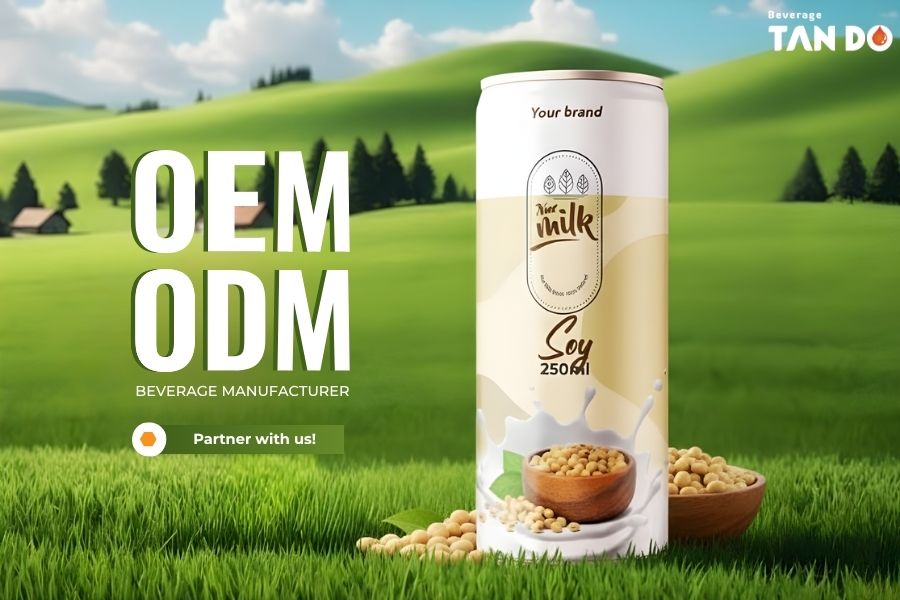

By Partnering with us, you’re offering more than a beverage — you’re providing a convenience and sustainable lifestyle choice that today’s consumers highly value.
You may also like:




